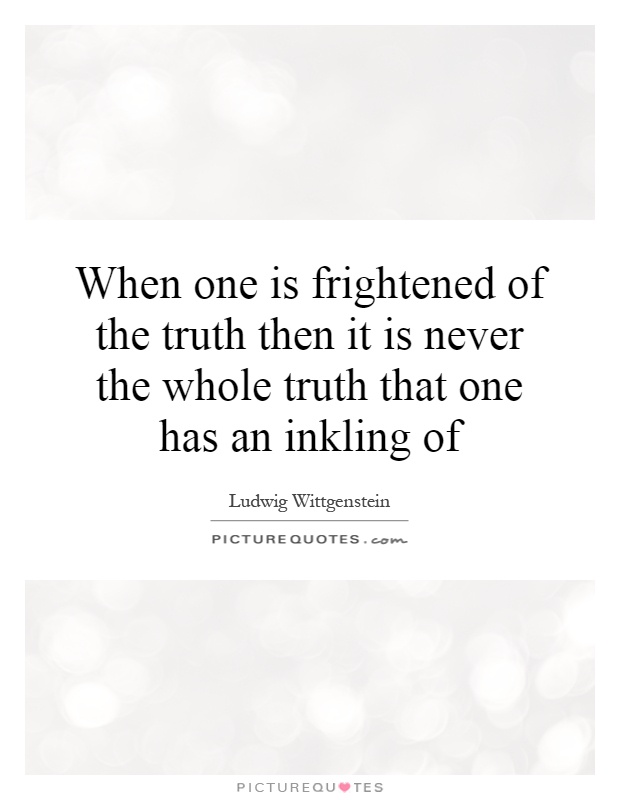When one is frightened of the truth then it is never the whole truth that one has an inkling of

When one is frightened of the truth then it is never the whole truth that one has an inkling of
Ludwig Wittgenstein, the renowned Austrian-British philosopher, is often associated with the idea that language is a tool for communication and understanding. He believed that language is not just a means of expressing thoughts and ideas, but also a way of shaping and defining our reality. In this context, the quote "When one is frightened of the truth then it is never the whole truth that one has an inkling of" takes on a deeper meaning.Wittgenstein was known for his emphasis on the importance of clarity and precision in language. He believed that language could only be meaningful if it accurately reflected the world as it is. However, he also recognized that language is inherently limited and can never fully capture the complexity and richness of human experience. This is where the idea of being "frightened of the truth" comes into play.
When we are afraid of confronting the truth, we tend to shy away from difficult or uncomfortable realities. We may try to avoid certain topics or ideas that challenge our beliefs or assumptions. In doing so, we only grasp a partial understanding of the truth, as we are unwilling to explore the full extent of it. This fear of the truth can lead to a distorted or incomplete view of reality.
Wittgenstein believed that in order to truly understand the world, we must be willing to confront the truth head-on, even if it is uncomfortable or unsettling. Only by facing the truth in its entirety can we hope to gain a deeper insight into the nature of reality. This requires a willingness to question our assumptions, challenge our beliefs, and engage in honest and open dialogue with others.












 Friendship Quotes
Friendship Quotes Love Quotes
Love Quotes Life Quotes
Life Quotes Funny Quotes
Funny Quotes Motivational Quotes
Motivational Quotes Inspirational Quotes
Inspirational Quotes